008 - My next book; how it all started 6 years ago!
Sharing for the first time how the seed for this project was planted in 2019
It’s January 2019, and we’ve just landed in Santiago de Chile, day 1 of a six-month journey southward aboard Dolly, our trusty 4x4 fold-out camper. We’re chasing a long-held dream; to traverse the entire length of Patagonia. With few plans, all the time in the world, and the open road stretching out in front of us, we have no clue what to expect.
Ever since I was a child, I’ve been deeply fascinated by remote places. Growing up in the Netherlands - one of the most densely populated countries in the world - may have sparked this curiosity, making me wonder what kind of lives unfold surrounded by complete emptiness.
So here we are. April 2019, three months into our journey. We often drive for hours, sometimes days, without a single sign of civilisation. The only constant is the occasional figure on horseback, emerging silently from the distance, solitary silhouettes, as if they are shaped by the wind. Sometimes they ride with cattle, but just as often, they travel alone. It intrigues me deeply. Yet, before I can find the courage to stop and approach them, they disappear back into the vast landscape, as if they never existed. I heard of ‘gauchos’ before, but know very little about them. At this moment, all I can grasp is that they seem like mythical beings, living embodiments of a life shaped by isolation.
My interest grows and one of many wrong turns leads us to a dead-end road at the foothill of Sierra Baguales. Little did I know at that point, this mountain range would years later become my second home. Just as we’re about to make a turn, I catch sight of a man in the far distance, unsaddling his horses, surrounded by restless sheep and barking dogs. Something pulls me out of the car, urging me to take a chance. “Welcome to the end of the world, my friend. This is where the road ends,” he shouts in Spanish. “Don’t come any closer, the dogs might get you. Give me a minute to finish with these horses,” he continues.
Two hours later, we are sitting in his kitchen, sipping on maté, while warming our hands in front of the stove. His name is Victor, and along with his father, Don Victor, he tends an abandoned farm in the Baguales Valley, caring for 6,000 sheep owned by ranchers who had moved to the city. “Please stay for dinner,” he says. “My dad will make you some cordero.” That same night we pop-up our fold out camper next to the estancia and fall asleep to the sound of barking dogs.
The next morning Victor knocks on our camper door with a big smile on his face. “Do you ride horses?”, he asks, holding a bunch of reins in his hands. We’re beginners I tell him, but I’m sure you can teach us some skills. “Sierra Baguales translates as valley of the wild horses, and I don’t allow you to leave this place without seeing why”, he continues. And there we are, hours later, strapped on the back of a horse, gazing at snowy peaks all around us. “You’re lucky, it’s the first snow of the season, in a few months from now, this entire valley will be white”.
We are hooked, and decide to stay for the week. And that week quickly turns into a month. Without any phone reception at the estancia, we gradually disconnected from our lives outside the valley. As if we slowly entered a different universe. We help with the daily chores, learn how to break horses and shear sheep, eat tender lamb 3 times a day, get drunk at the fireplace at night, and learn about their way of life. It’s a humbling experience.
After a month, we decide it’s time to move on. Yet a spark has been lit. We continue our journey south toward Tierra del Fuego, our final destination, and eventually back home. But months later, my mind keeps drifting back to that valley, to the stories Victor shared.
Curious, I started researching online and find a poem by the Argentine poet José Hernández. Published in 1872, ‘El Gaucho Martín Fierro’ speaks of freedom, resistance to authority, and the struggles of the rural working class in 19th-century Argentina. It resonates deeply with me, echoing Victor’s stories told about the gauchos across the Baguales region. The same sentiment still exists.
I decide to dive deeper into contemporary literature about gaucho culture and discover a community that, for centuries, has been neglected and dispersed, losing much of its identity as a social group. On the one hand, these men seem proud and driven by strong masculine characteristics, whereas at the same time, they have a tendency to consider themselves as perpetual victims of the circumstances. I realize this reality stands in stark contrast to the romanticized image the Patagonia tourism industry often portrays. I feel a strong urge to return, to meet more gauchos, listen to their stories, and understand the duality the comes with living a life in complete isolation.
In my quest for more reference and information, I bump into a short film on Vimeo, titled ‘Campesinos’. A 9-minute-long film that touches on similar subjects. A portrait of sacrifice, tradition and endurance in extreme conditions. It’s recorded in the Baguales region and highly awarded. A young and talented Australian/Chilean film director is behind it. His name is Matias Bolla. It's early 2020, and Covid has just spread. I decide to send him an email.
With the entire world being locked up at home, and as a result, the consequences of isolation and loneliness being widely discussed across media, Matias and I discover we have a joint interest in revisiting the region and a growing interest in deepening our understanding of the place.
Our team is small. Sydney-based Matias Bolla is our director, Miller Best is cinematographer, and I join the team as photographer. Carolina Sorensen works from Australia as our producer. And Cristian Valle Celedon is our Chilean based executive producer. Our interest is two-fold, to produce a 90-minute-long feature film, a photographic exhibition and a photo book. Through a multidisciplinary approach, we hope to create a poetic look into the intimate world of some of the last Southern Chilean country men. We have no clue how to pull this off, we have zero money, but something inside us tells us things will play out.
We start working on a script, and as soon as the Chilean borders open up again for international travel after a long pandemic lock-down, we’re on the first plane to Puerto Natales. At that point I have no clue what will happen next, but I’m committed to work on this project for the years to come.
Next edition:
I will continue to unfold this project step by step in the weeks/months to come. Next edition I will make some first introductions to characters that feature in the story. I will show you some never-before seen photographs and back stories and talk you through the process of how our first production leg marked the start of a 5-year long project.
Where Else Can You Find Me?
Website: www.pieaerts.com
Instagram: @BecausePeopleMatter & @PieAerts
Let’s build something meaningful together.


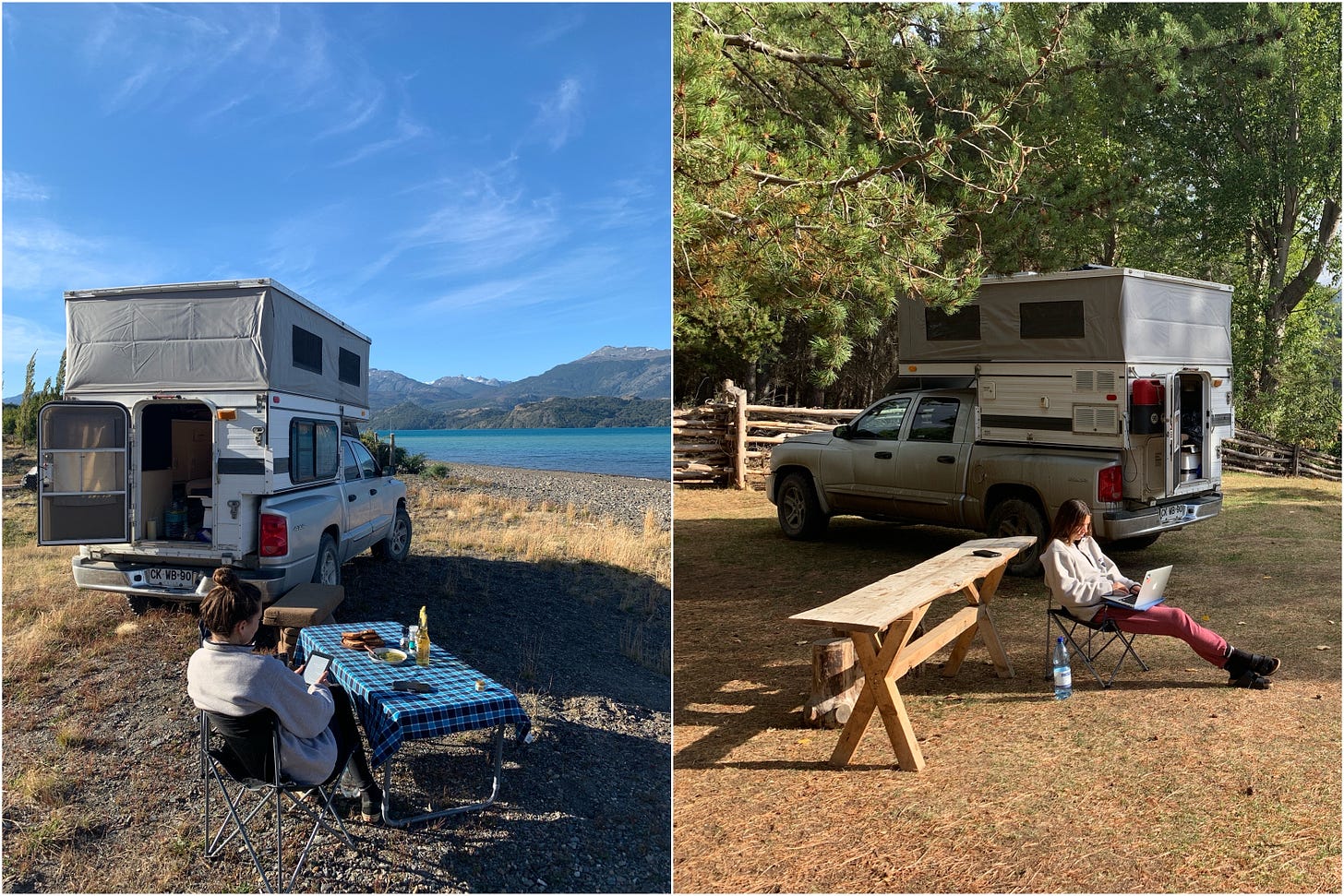
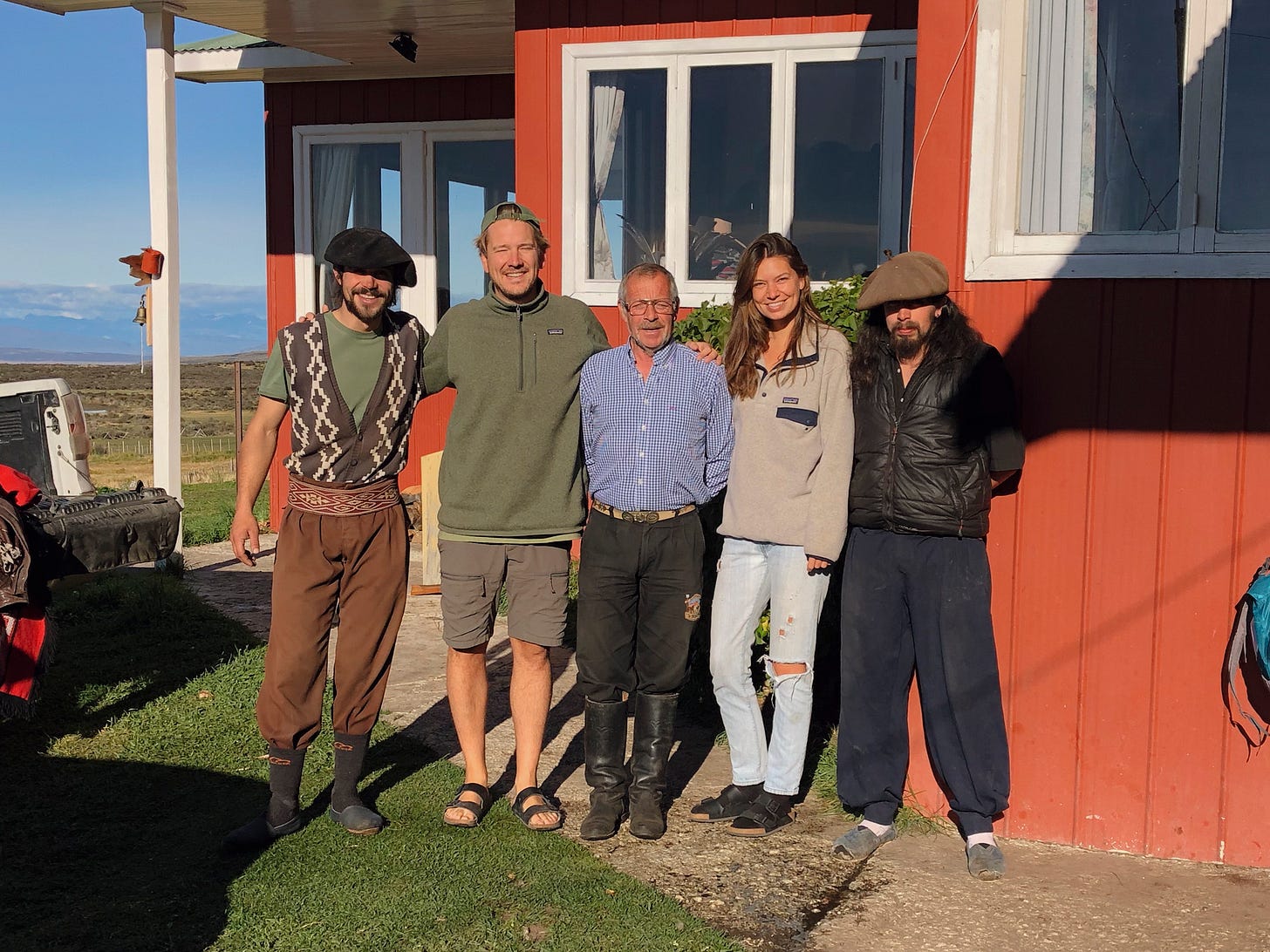
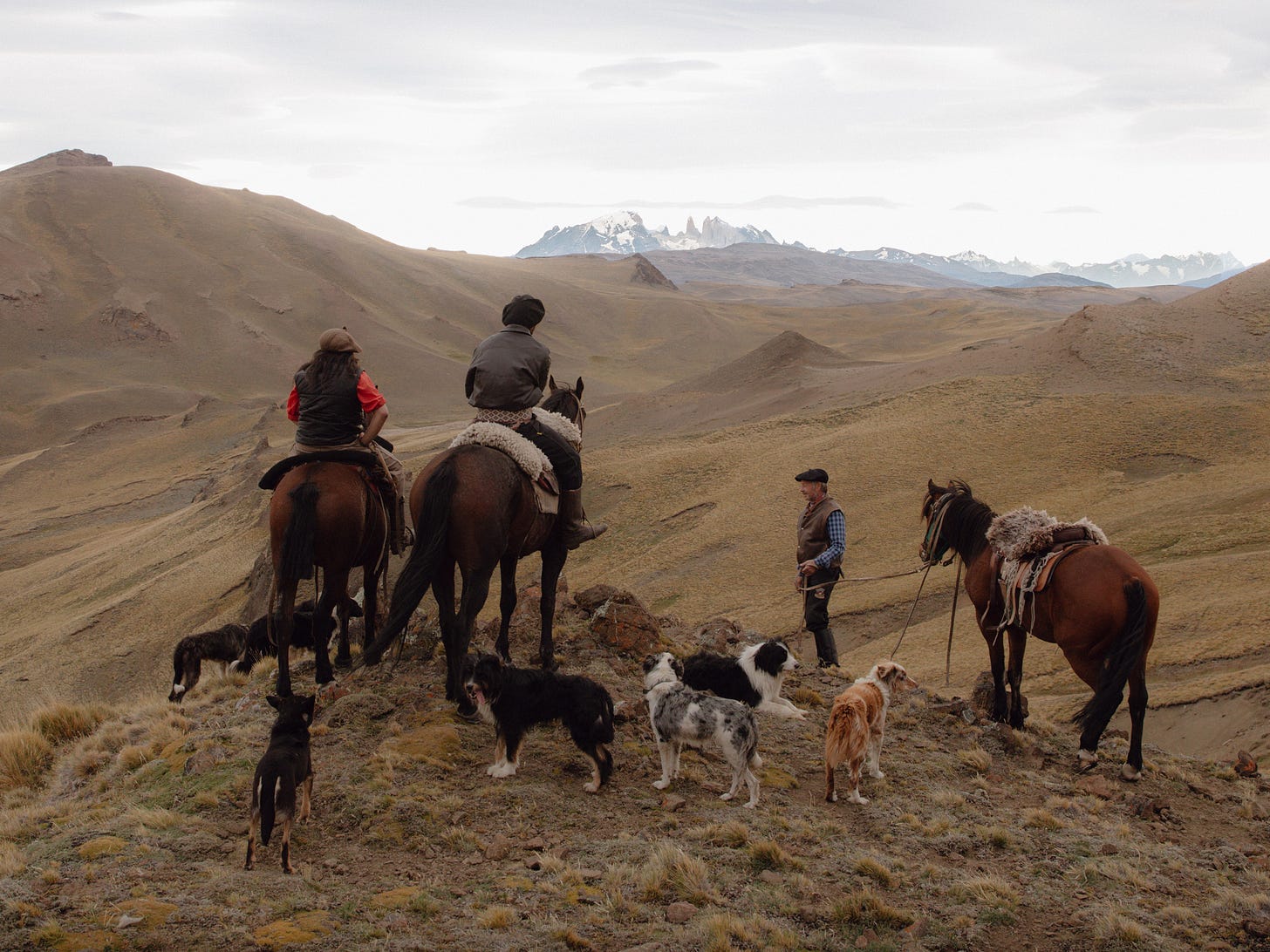
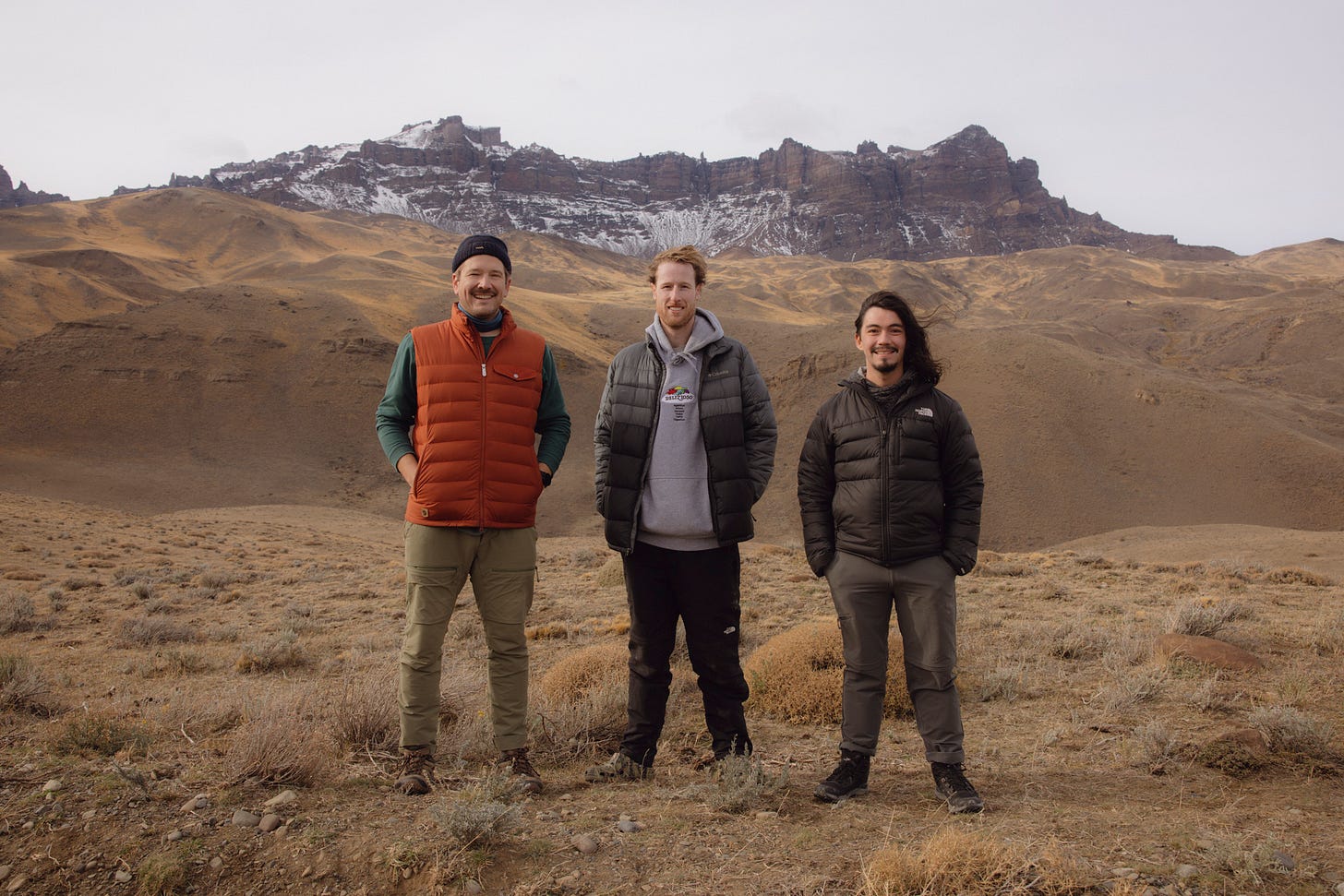
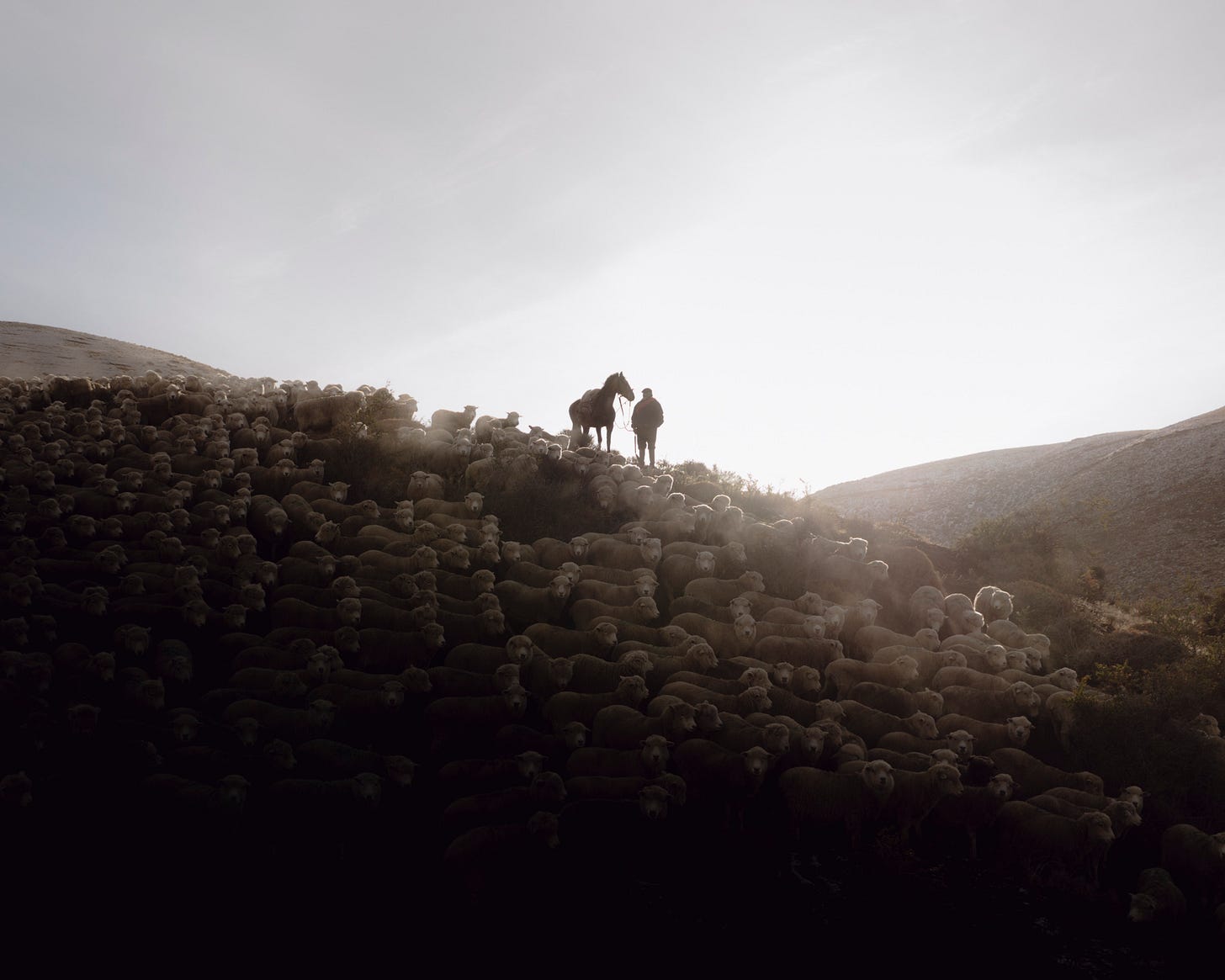
Longtime follower here, migrant from instagram 👋
This had me captivated. As a photographer similarly called by some nameless, urgent summons to travel and document quiet unfoldings around the world, I held my breath reading your story. I have had my own moments of “look here, there’s something precious to see” in unexpected places. Met with a hospitality and generosity from strangers that inspired me to completely redirect my life toward my art in full force. I cannot wait for this book and more pieces of the story. I think of you and your work regularly, as I fight I realize my own dreams. Thank you for sharing 🩵
Really nice piece of writing. Interesting and expressive of your desire to learn.